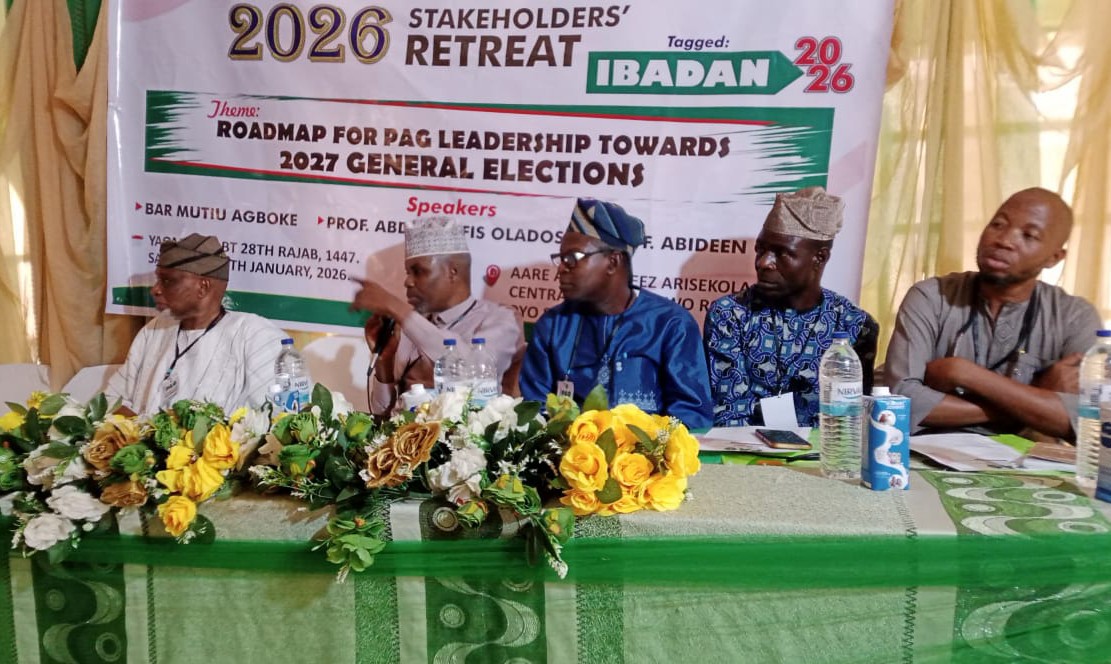EXCLUSIVE: Why Tinubu, staggered, tripped in Ankara
January 28, 2026PAG Calls for Active Voter Participation Ahead of 2027 Elections
January 25, 2026774 Councils Can’t Afford To Pay N62,000 Wage, Say LG Chairmen
774 Councils Can’t Afford To Pay N62,000 Wage, Say LG Chairmen

The raging controversy over the proposed new minimum wage remains unabated as Chairmen of the 774 local governments yesterday, said they would not be able to pay N62,000.
They dismissed the N250,000 proposal by organized labour as unaffordable.
N62,000 is the proposed amount as agreed to by the Federal/State Governments and the Organised Private Sector (OPS) at the conclusion of negotiations by the Tripartite Committee.
Recall that President Bola Ahmed Tinubu on Wednesday announced plans to send the agreed amount to the National Assembly for legislative action. But labour insisted there is no agreement yet.
Yesterday, the Supreme Court reserved judgment in the dispute between the Federal Government and State governments over autonomy for the local government councils.
Also, the Managing Director of Financial Derivatives Company Limited, Bismarck Rewane, warned that without a corresponding boost in productivity, the proposed increase in minimum wage could spell economic disaster for the country.
Speaking through Association of Local Government of Nigeria (ALGON) chairman Aminu Muazu-Maifata, said local government cannot pay the wage due to financial constraints.
He said the allocation to the local governments from the Federation Account were meagre.
Muazu-Maifata, who spoke on a national television, said: “With the present allocation from the Federation Account, no local government council in Nigeria can afford to pay N62,000.”
He pointed out that local governments receive only slightly above 18 percent of the total revenue accruing to the Federation Account, while the Federal Government receives more than 52 percent.
He stressed: “Presently, 90% of our inflow from the Federation Account goes into salaries and pensions. Without an upward review of the percentage of allocation to local government councils, it will be extremely difficult or even impossible for them to pay a N62,000 minimum wage.”
Muazu-Maifata, who is chairman of Lafia Local Government, Nasarawa State, appealed for understanding and assistance from higher authorities, noting that local governments would have to turn to governors and the Federal Government for financial augmentation, if a new minimum wage law is enacted.
He said: “We will have to run to our principals, the governors, and the Federal Government to augment whatever will be accrued to local government councils from the Federation Account.”
Muazu-Maifata said councils perform multiple functions beyond salary payments, adding that these obligations should be considered when determining an affordable and sustainable minimum wage.
The roles, he said, include the provision of basic health services, education, sanitation, security, rural roads, potable drinking water, and rural electrification.
Muazu-Maifata called for a collaborative resolution of the wage crisis among the Organised Labour, states and the Federal Government.
He said: “We are watching and hoping that an agreeable result will be reached. Local governments are prepared to comply with any legally enacted minimum wage, but require financial support to do so.
On overstaffing and ghost workers, Muazu-Maifata cautioned against the potential fallout of mass layoffs.
He said: “Past administrations have overflown the workforce, leading to redundancy. Tackling this would affect many families negatively.”
Meanwhile, Mr Bismarck Rewane, who on another programme, said wage increase could lead to severe long-term implications.
He said: “The issue with minimum wages is that increasing them without a parallel rise in productivity due to infrastructural challenges like power shortages could effectively be tantamount to printing money,” Rewane explained.
He emphasised the urgency of addressing productivity alongside wage hikes to maintain economic stability.
Rewane highlighted the multifaceted nature of the negotiations, involving federal, state, and local governments, as well as the private and informal sectors.
He said “It’s not just a matter of agreeing on numbers; it’s about balancing wages against national productivity and welfare.”
He also alluded to the legal implications of non-compliance with minimum wage laws, saying that “failure to pay the minimum wage is punishable by hefty fines, which could exacerbate financial burdens for businesses.”
Rewane stressed: “Amidst the wage standoff, Nigeria also grapples with a downturn in crude oil production, declining by more than two percent. The decline is attributed to various factors, including divestment and operational challenges. This could impact national revenues and fiscal stability.”
He called for a collaborative approach to resolving the crisis to mitigate escalating economic risks.
Rewane stressed: “We need credible negotiations that consider the broader economic implications.”
END.










